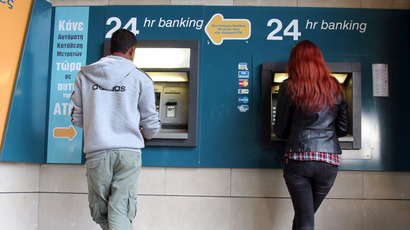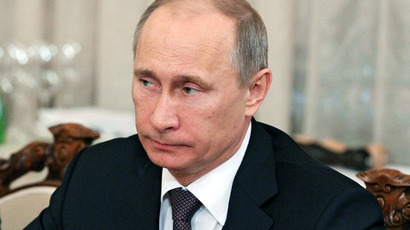Cypriot parliament votes against deposit levy
The Cypriot parliament has voted against a revised bank deposit levy. The tax was meant to shave 9.9% off any deposits over €100,000 and has since caused uproar in the country.
Thirty six deputies voted against the proposal to tax bank deposits in the 56-member chamber, while 19 abstained. One deputy was not present for the vote.
"The bill has been rejected," said house speaker
Yiannakis Omirou, as thousands of protesters outside the parliament
building in Nicosia erupted in cheers.
According to the proposal, a 6.75% rate was to be set for amounts between €20,000 and €100,000. Deposits of up to €20,000 euros were to remain untouched.
Passage of the bill was considered a prerequisite for a €10
billion European Union bailout for the Mediterranean island. EU
finance ministers have warned that Cyprus' two biggest banks could
go bust if a bailout deal in some form is not forthcoming. The
government and opposition parties have scheduled emergency talks on
the bailout for Wednesday.
The European Central Bank (ECB) has threatened to end emergency
lending assistance for Cypriot banks if a bailout deal was not
ensured. However, following the vote, the ECB said it would
continue to provide liquidity to Cyprus as needed “within the
existing rules,” Bloomberg reports.
Cyprus has discussed the tax with its European creditors.
Ministers from the 17 eurozone countries urged protection for
savers with €100,000 or less and for them to be spared from the
levy, after the prospect brought panic to the markets and had
Cyprus dealing with the prospect of Russia withdrawing its rescue
loan.
Meanwhile Cypriot President Nicos Anastasiades discussed the
economic situation in Cyprus with the Russian President Vladimir
Putin, who has slammed the proposed deposits as "unfair,
unprofessional and dangerous."
“During a telephone conversation, the heads of state analyzed
the economic situation in Cyprus in light of the Eurogroup’s
bailout proposals,” Putin’s spokesman Dmitry Peskov said late
on Tuesday, adding that the talks were initiated by the Cypriot
president.
This comes despite German Chancellor Angela Markel stressing that
Cyprus should hold talks only with the international creditors and
not third parties like Russia. Merkel spoke with Anastasiades by
telephone on Tuesday.
“The chancellor once again emphasized that the negotiations are
to be conducted only with the Troika,” a government spokeswomen
told AFP.
Russian banks had around $12 billion deposited in Cypriot banks at
the end of 2012, according to ratings agency Moody's.
The Cypriot government’s original proposal was to tax all depositors, setting the rate of 6.75% on all deposits under €100,000 and maintaining a 9.9% tax on all deposits above that level.
In the meantime all Cypriot banks have frozen the accounts liable for the tax and stopped all transactions, including electronic and closed for a long weekend until Thursday to prevent panic.
Cyprus needed to raise €5.8 billion euros for its bailout program and was hoping to get the money in the planned bank deposits levy.
Despite the precarious position Cyprus has found itself in, a
default might be preferable than a bailout under the present
conditions, United Kingdom Independence Party MEP Nigel Farage told
RT.
“The EU has been unhappy about so-called tax havens for a very
long time. Ironically, whilst continuing to turn a blind-eye to
many activities that go on in Luxemburg. I mean Cyprus finds itself
right now in a very difficult, desperate position. But I would say
that it is better to officially go bankrupt, to default on
international bond obligations. And to do that best to keep a
banking industry and to keep some confidence in that country,”
he said.














